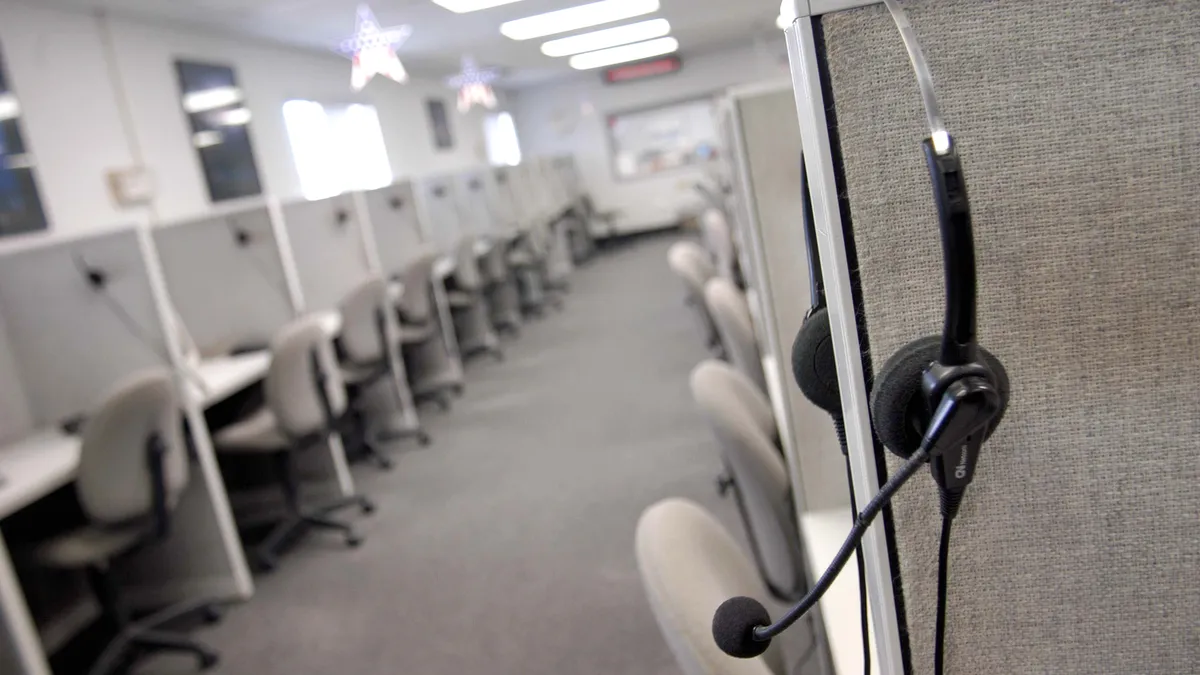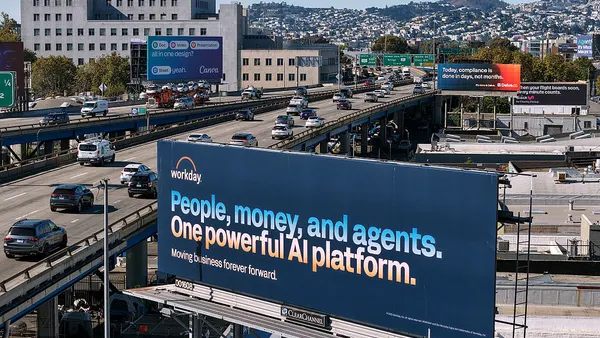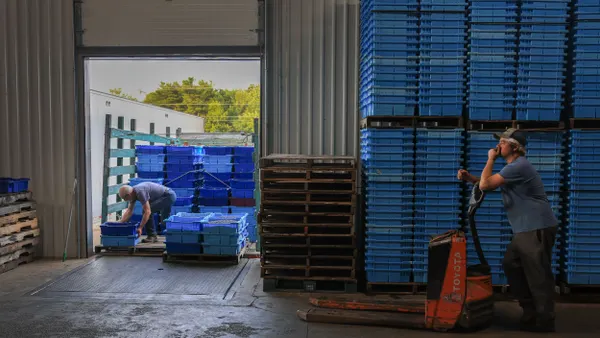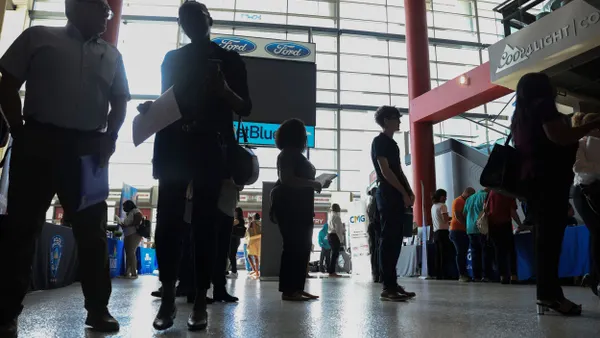Dive Brief:
- Since late 2022 when OpenAI launched ChatGPT and generative artificial intelligence became widespread, early-career workers aged 22-25 in the most AI-exposed fields have seen a 13% relative decline in employment, Stanford University researchers found.
- However, AI didn’t appear to touch workers with more experience or those in less exposed fields; their employment remained stable or grew from late 2022 through July 2025, according to the research, published Tuesday.
- The findings show that “the AI revolution is beginning to have a significant and disproportionate impact on entry-level workers in the American labor market,” researchers said.
Dive Insight:
While many have hypothesized about the effects widespread AI adoption would have on workers, “empirical evidence has struggled to keep pace with technological advancement, leaving many fundamental questions unanswered,” the researchers said.
The report used payroll records from ADP, a massive payroll software provider, to sample information for millions of workers across tens of thousands of firms to demonstrate AI’s effect on job opportunities.
The researchers also found that “employment declines are concentrated in occupations where AI is more likely to automate, rather than augment, human labor.”
Employment for the youngest workers filling roles as software engineers and customer service agents — two occupations considered highly exposed to generative AI — dropped “considerably” after 2022, while other age groups saw employment growth, the report found. For software engineers aged 22-25, employment fell nearly 20% by July 2025 from a high in late 2022.
To fend off the AI tsunami’s fallout, some younger workers said they’ve turned to blue-color work, career website Zety recently reported.
A Zety career expert referred to this shift as the ‘AIxiety Pivot’ — a growing movement of professionals who are proactively changing course because of AI-related fears and instability.”
But not all younger workers are on board. Only about a third of Generation Z employees said they strongly agreed that skilled trades provide a quicker and more affordable path to a stable career, yet about half of other generations surveyed thought so, a report by The Harris Poll found.
One theory the Stanford researchers suggested for the effect of AI on early-career workers is that, “by nature of the model training process, AI replaces codified knowledge, the ‘book-learning’ that forms the core of formal education.” On the other hand, “AI may be less capable of replacing tacit knowledge, the idiosyncratic tips and tricks that accumulate with experience” on the job, they said.
















